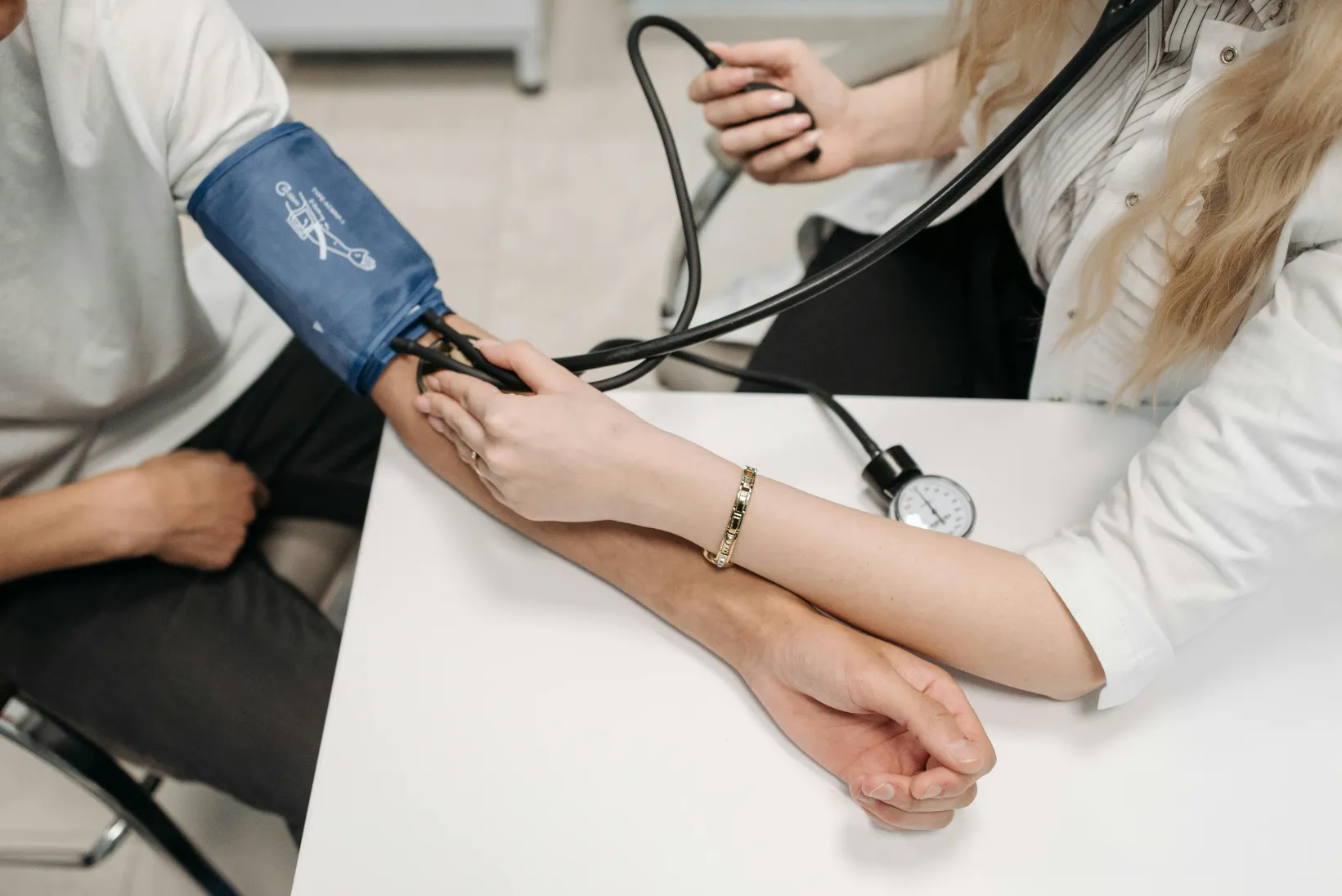Introduction
Choosing a good GP practice is essential for maintaining one’s health and well-being. A skilled General Practitioner (GP) not only provides necessary medical care but also ensures that patients receive the highest standards of treatment and support throughout their healthcare journey.
Importance of choosing a good GP practice:
- Consistency in Care: Regular visits to a quality GP practice offer continuity, allowing your doctor to become familiar with your medical history, thus providing personalised care.
- Comprehensive Services: A reputable GP practice will provide a wide range of services including preventive care, management of chronic conditions, and access to specialist referrals when necessary.
- Trust and Comfort: Establishing a trusting relationship with your GP is crucial. It encourages open communication about health concerns, leading to more effective treatments and better patient outcomes.
Ensuring quality healthcare:
- Access to Expertise: Quality GP practices employ highly trained professionals who stay updated with the latest medical advancements. This ensures that patients receive accurate diagnoses and effective treatments.
- Patient-Centred Approach: Good GP practices prioritise patient needs, ensuring that individuals are treated with respect and compassion. They promote active involvement in one’s own care, fostering a collaborative environment between patients and healthcare providers.
- Systematic Processes: Implementing robust processes for monitoring health conditions, managing emergencies, and maintaining confidentiality is vital in delivering safe and reliable healthcare services.
For further insights into personal experiences with top-tier healthcare providers, visit Proactive Healthcare Stories. Should you need assistance or more information about selecting the right GP practice for you, feel free to contact Proactive Healthcare.
Understanding what to expect from a good GP practice sets the foundation for navigating the complexities of healthcare with confidence.
1. Safety Measures in Place
Effective safety measures are critical in any GP practice. A strong system ensures that patients receive the best possible care while protecting their well-being.
Having enough staff with the right skills and knowledge to handle emergencies
A good GP practice must have well-trained professionals who can respond quickly and effectively to medical emergencies. This includes not only doctors but also nurses and administrative staff who are equipped with the necessary skills to act swiftly in urgent situations.
Following strict protocols for monitoring signs of worsening health
Detecting health deterioration early can save lives. Implementing strict protocols enables healthcare providers to identify and address potential issues before they become critical. Regular training sessions help staff stay up-to-date with the latest monitoring techniques and technologies.
Keeping personal records confidential
Confidentiality is essential for patient trust. Ensuring that all personal records are securely stored and only accessible to authorised personnel is crucial. This involves using encrypted digital systems, following data protection regulations, and educating staff on the importance of privacy.
Being prepared for emergencies and having plans to respond
Preparedness for emergencies goes beyond medical incidents. Comprehensive response plans should cover various situations, including natural disasters, fire outbreaks, or security threats. Regular drills and updates to these plans ensure that all staff members know their roles and responsibilities during an emergency.
By prioritising safety, we not only protect our patients but also build their confidence in the healthcare system, ultimately leading to better health outcomes.
2. Providing Effective Treatment
Delivering optimal care relies on understanding what patients need. A good GP practice prioritises personalised consultations to understand each patient’s unique medical history, preferences, and concerns. This approach makes sure that treatments work well and fit in with the patient’s lifestyle and expectations.
Doctors need easy access to information and resources to give high-quality care. Electronic Health Records (EHRs) are important for this. They let GPs quickly see detailed patient histories, past treatments, and current medications. Using digital tools also helps with making informed decisions and treating patients more efficiently.
It’s important to keep track of how well things are going and find ways to do better. Regular checks, reviews by colleagues, and following clinical guidelines all help practices stay up-to-date with the latest in medicine. Checking performance means looking at things like how often treatments work, how long it takes patients to get better, and what patients say about their experiences.
- Understanding patient needs: Personalised consultations
- Access to information: Use of Electronic Health Records
- Performance monitoring: Regular checks, reviews by colleagues, following guidelines
This comprehensive approach shows how dedicated a good GP practice is to giving effective treatment that meets the highest standards of healthcare quality and patient satisfaction.
3. Caring and Compassionate Approach
A good GP practice places a strong emphasis on treating patients with dignity, respect, and kindness. This involves:
- Respectful Interactions: Every patient deserves to be treated as an individual, with their unique preferences and needs acknowledged. Respectful interactions foster trust and contribute significantly to the patient’s overall well-being.
- Open Communication: Maintaining clear and open communication is pivotal. Patients should be kept informed about their medical conditions and treatment options in an understandable manner. This transparency helps patients feel more at ease and confident in the care they are receiving.
- Patient Involvement: Encouraging patients to actively participate in their own care decisions is essential. By involving patients in treatment plans, they become partners in their healthcare journey, which can lead to improved health outcomes.
The combination of these elements ensures that patients feel valued and understood, creating a positive and supportive healthcare environment.
4. Timely Responsiveness to Patient Needs
A good GP practice prioritises timely responsiveness to patient needs, ensuring that all patients receive prompt and efficient care. One of the most critical aspects of this is having an efficient appointment scheduling system.
An efficient appointment system minimises wait times, allowing patients quicker access to medical assistance when needed. This can be achieved through:
- Online booking systems: Enables patients to book, reschedule, or cancel appointments at their convenience.
- Telephone triage services: Allows trained staff to assess the urgency of patient needs and allocate appropriate appointment slots.
- Walk-in clinics: Provides immediate access for urgent cases without prior appointments.
These systems ensure that patients are seen in a timely manner, reducing the anxiety associated with long waits and delayed treatment.
Moreover, practices should have protocols in place to handle urgent or emergency situations swiftly. This involves:
- Having dedicated time slots each day for urgent appointments.
- Implementing a streamlined process for referring patients to specialists or hospitals when necessary.
By adopting these measures, GP practices demonstrate their commitment to being responsive and accessible, thus enhancing patient satisfaction and health outcomes.
5. Well-Led and Patient-Focused Practices
A well-led GP practice is characterised by its emphasis on performance transparency and accountability. This means that the practice prioritises open communication about its operations, successes, and areas needing improvement. By promoting this culture of transparency, patients can trust that their healthcare providers are committed to maintaining high standards of care.
Key Features:
Performance Transparency:
- Regularly publishing performance data and patient outcomes.
- Holding staff meetings to discuss operational efficiencies and patient care quality.
- Implementing rigorous audits to identify and rectify any discrepancies in care delivery.
Accountability:
- Ensuring every team member understands their roles and responsibilities clearly.
- Establishing clear lines of reporting to address issues promptly.
- Encouraging a blame-free culture where staff feel comfortable reporting mistakes or near misses.
Soliciting patient feedback is crucial for continuous improvement. A practice that actively seeks out patient opinions demonstrates its commitment to patient-focused care. Methods for gathering feedback include:
- Surveys and Questionnaires:
- Conducting regular patient satisfaction surveys.
- Providing options for anonymous feedback to ensure candid responses.
- Patient Focus Groups:
- Organising forums where patients can voice their experiences and suggestions.
- Collaborating with patient representatives to co-design improvements in service delivery.
By valuing patient input, practices can make informed decisions that enhance the overall quality of care, ensuring they remain responsive to the evolving needs of their community.
Conclusion
Choosing the right healthcare provider, such as a good GP practice, is crucial for ensuring access to quality healthcare services. A well-chosen GP practice can significantly impact your overall health and wellbeing.
A competent GP practice provides:
- Comprehensive Safety Measures: Ensuring your health and safety through well-trained staff, strict health monitoring protocols, and emergency preparedness.
- Effective Treatment: Understanding patient needs, accessing necessary resources, and continuously improving medical performance.
- Caring and Compassionate Approach: Treating patients with dignity and respect while promoting open communication.
- Timely Responsiveness: Efficient systems to minimise wait times and address patient needs promptly.
- Well-Led Operations: Fostering transparency, accountability, and valuing patient feedback for continuous improvement.
Taking these factors into account when selecting a GP practice ensures you receive the highest standard of care. This choice directly influences your journey towards better health outcomes. Prioritising these aspects helps in navigating the complexities of healthcare with confidence and peace of mind.




